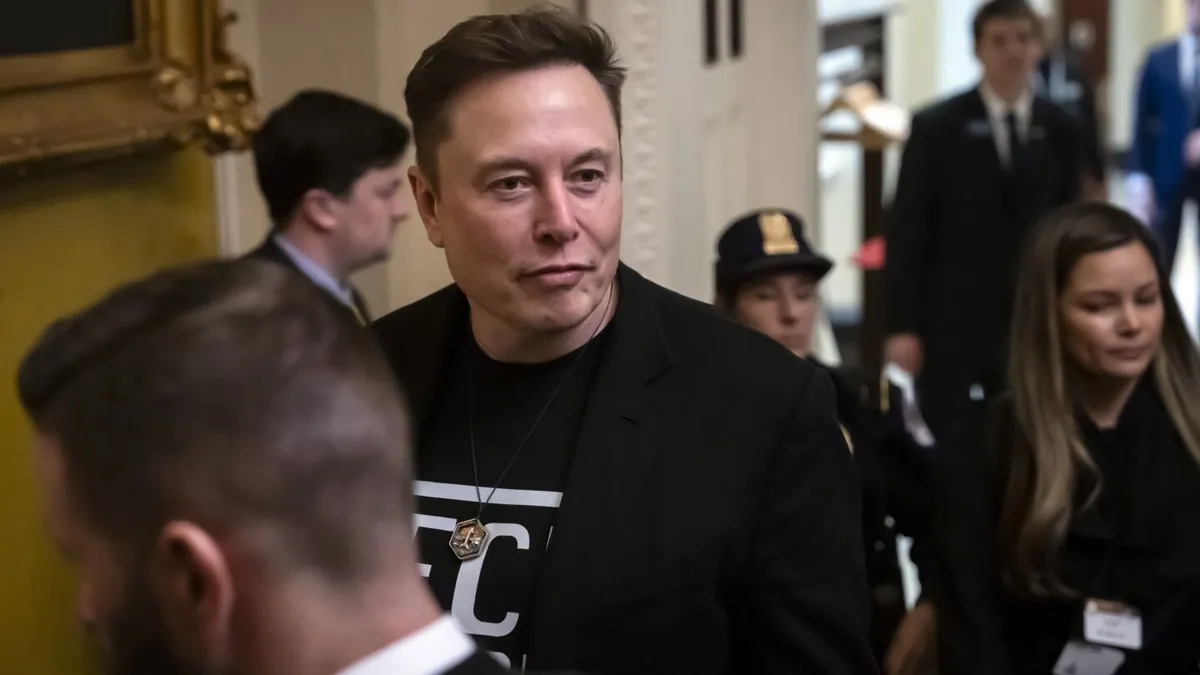
In a surprising turn of events, billionaire entrepreneur Elon Musk made his way to Capitol Hill on Tuesday to delve into the intricacies of budget rescissions, a little-known legislative tool that could bolster his efforts to slash federal spending. This visit came shortly after the Supreme Court dealt a setback to the Trump administration, halting attempts to freeze approximately $2 billion in foreign aid through the U.S. Agency for International Development.
During a lunch meeting with Republican senators, Musk emphasized the need for Congress to take decisive action. Over a meal of fried catfish, the senators shared insights on how the White House could package the billions in savings he has identified into a budget rescissions package. This package could then be sent to Congress for a vote, effectively enshrining the proposed cuts into law. According to Senator Lindsey Graham of South Carolina, who chairs the Senate Budget Committee, Musk was visibly excited about the potential of this legislative tool. “He was so happy,” Graham remarked, noting Musk’s eagerness to learn more about the process.
Later that day, Musk further engaged with House Republicans during a dinner in the Capitol basement. After the closed-door session, he voiced optimism about the government's spending practices. “You know, there’s a lot of room — a lot of opportunity — to improve expenditures in the government,” Musk noted, highlighting his commitment to enhancing government efficiency.
The conversation around budget rescissions introduces a critical phase in Musk’s ongoing efforts to promote government efficiency. The Trump administration currently finds itself embroiled in legal battles concerning substantial budget cuts affecting the federal government. As lawmakers grapple with public backlash and ongoing protests over job losses, the administration aims to demonstrate that these actions yield tangible savings rather than merely headlines associated with job losses.
Senate Majority Leader John Thune humorously expressed concern after Musk shared his cellphone number for senators to reach out with questions. “I thought, OK, his phone’s going to start blowing up,” Thune joked during an interview. Senators also mentioned that Musk’s aide, Katie Miller, would facilitate a direct line of communication for any inquiries regarding the budget cuts.
The idea of leveraging budget rescissions was first brought up by Senator Rand Paul during the meeting. Paul, a staunch advocate for reducing federal spending, expressed enthusiasm for Musk’s initiative to cut wasteful expenditures. “To make it real, it needs to come back in the form of a rescission package,” Paul stated, emphasizing the importance of translating Musk’s vision into actionable legislation.
While the potential size of the rescission packages is yet to be determined, discussions have hinted at cuts amounting to at least $100 billion. Musk has previously indicated that his team at DOGE (Department of Government Efficiency) aims to uncover $1 trillion in savings this fiscal year. However, GOP leaders have been cautious about the feasibility of such ambitious plans, particularly in light of potential opposition from within the party itself.
Despite the focus on budget cuts, there was minimal discussion about the impact on federal workers who have been affected by the recent layoffs. Senator Paul pointed out the need to ensure that essential personnel are not unjustly let go. “We do need a smaller government. We do need less federal workers,” he concluded, underscoring the delicate balance between efficiency and maintaining necessary government functions.
Elon Musk’s foray into legislative discussions on budget rescissions marks a significant moment in the ongoing conversation about government efficiency and spending cuts. As the Trump administration navigates legal challenges and public scrutiny, the outcomes of these discussions could have lasting implications on federal budgeting and the overall efficiency of government operations.